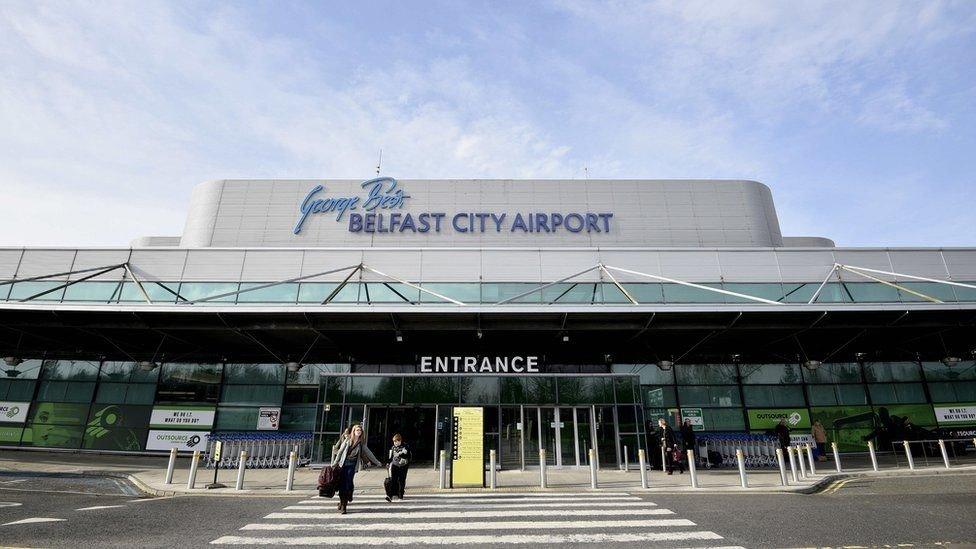Covid-19: Health ministers expected to discuss cross-border travel
- Published
- comments
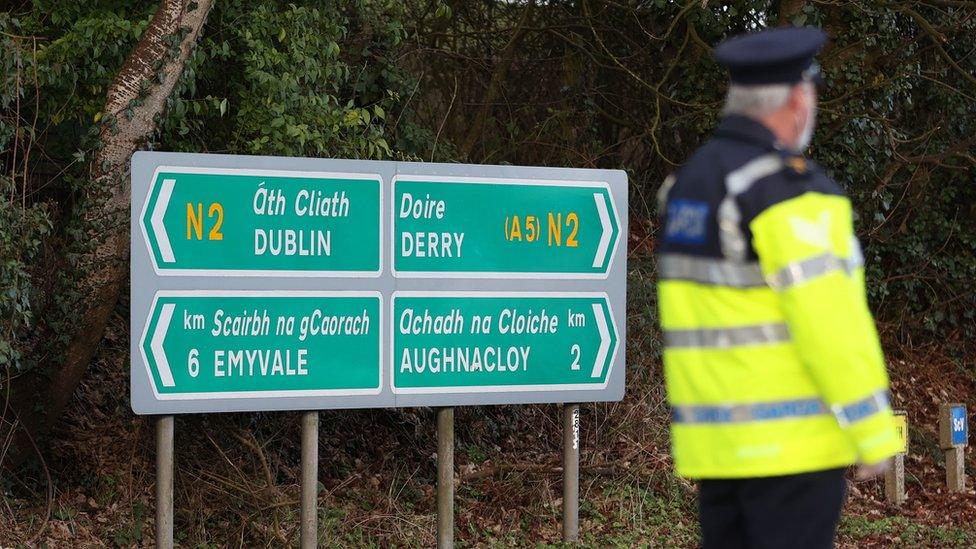
Gardaí (Irish police) set up checkpoints in February 2021 when fines were introduced for non-essential cross-border travel
Ireland's health minister has said he does not believe new Irish cross-border travel restrictions are "warranted", given the current Covid-19 situation.
NI Health Minister Robin Swann has written to Stephen Donnelly seeking a meeting to discuss the Covid-19 risks from cross-border travel.
Mr Swann said both governments should be working to "prevent non-essential cross-border travel".
Mr Donnelly said he expected to speak to Mr Swann about the issue this week.
There have been concerns in recent days about relatively high levels of Covid-19 in the Donegal area.
In the letter, Mr Swann called on the Irish government to elicit an "appropriate and proportionate" response to recent transmission data on both sides of the border.
"Our two jurisdictions are at different junctures, in terms of number of cases, the current trajectory of the epidemic, vaccination progress and Covid-19 cases in respective jurisdictions," he said.
He added that "clear messaging" around cross-border travel and enforcement should be used, if required.
When asked about the letter on Sunday, Mr Donnelly told RTÉ Radio there was an "open border" on the island and the Irish government did not want that to change.
When pressed on whether or not he would agree to the request to prevent non-essential cross-border travel, he said the government would consider the issue and he would also discuss it directly with Mr Swann.
"My own view right now is that the epidemiological situation wouldn't warrant that," he added.
"I believe the island is doing very well both north and south at the moment."
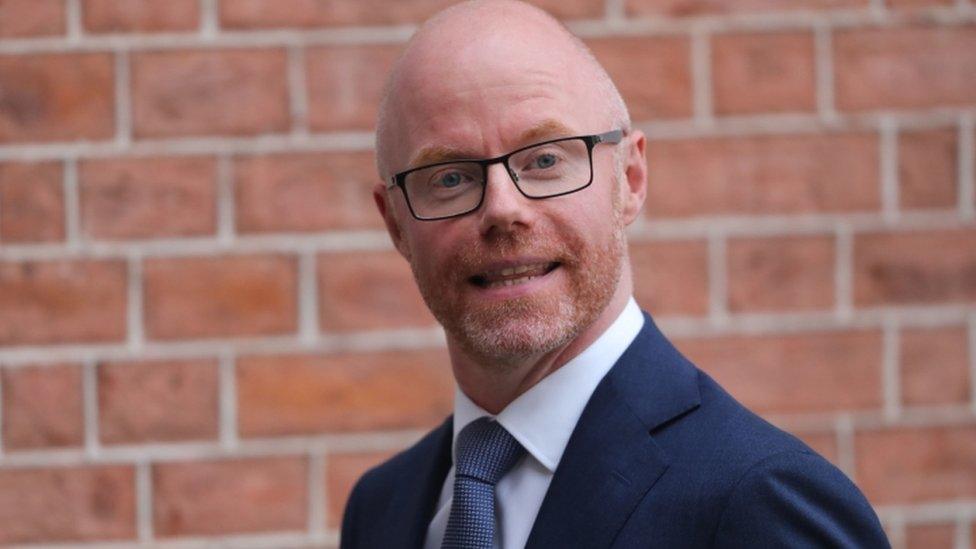
Irish Health Minister Stephen Donnelly said he expected to speak to Mr Swann this week
Irish Agriculture Minister Charlie McConalogue has welcomed Mr Swann's willingness to work on a cross-border basis to protect public health and urged continued caution as both economies emerge from lockdown.
Speaking to the BBC's Sunday Politics programme, Mr McConalogue would not be drawn on whether or not there should be enforcement to prevent non-essential cross-border journeys.
"It's not a border issue, it's a regional issue and we have to work together" he said.
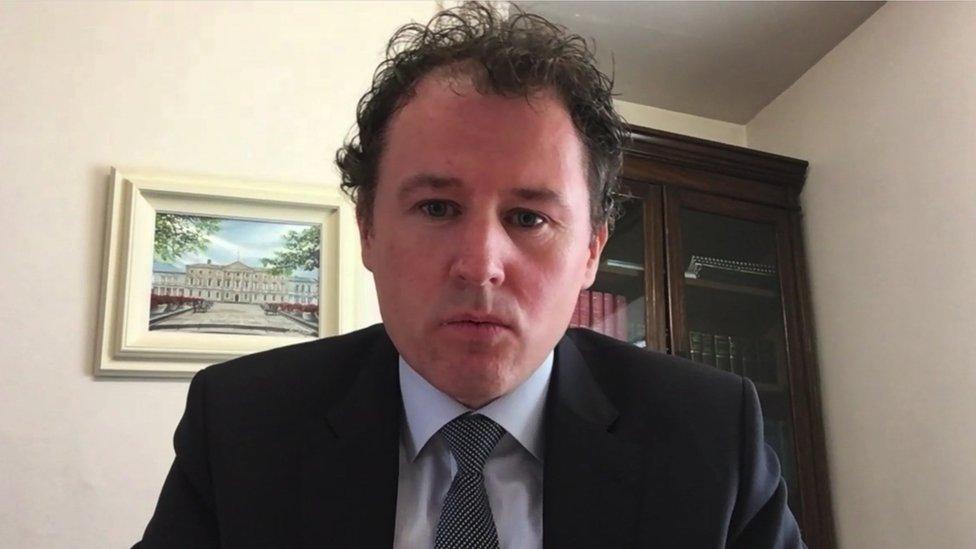
Charlie McConalogue urged continued caution as economies on both sides of the border gradually reopen
What are the current restrictions?
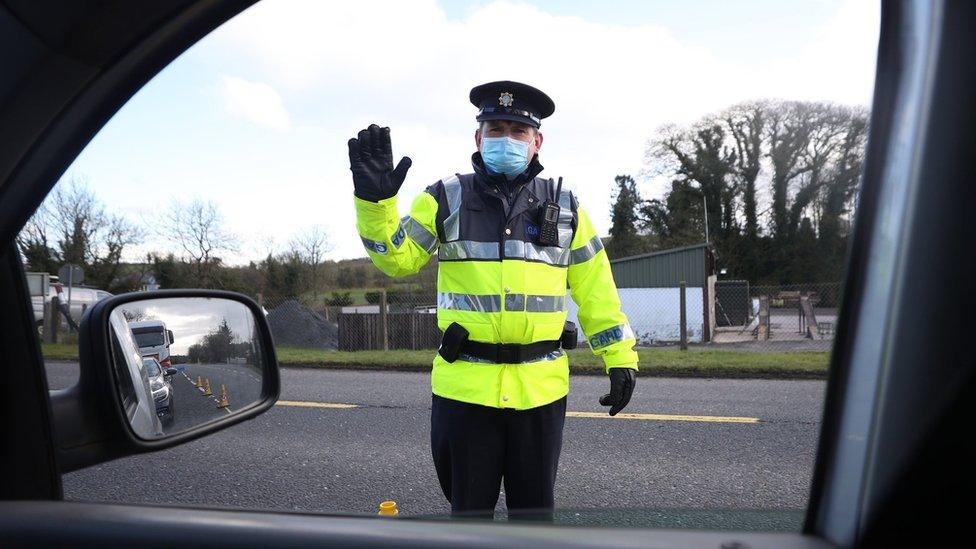
Irish police were given enforcement powers in February to restrict non-essential cross-border travel
The Republic of Ireland has been at its highest level of coronavirus lockdown - level five - since Christmas.
In February 2021, the Irish government introduced new Covid-19 restrictions on cross-border travel, meaning anyone "not ordinarily resident" in the Republic of Ireland would face a €100 (£88) fine if they were detected entering the state for non-essential reasons.
Since then, 434 coronavirus fines have been issued by Gardaí to "persons not ordinarily resident travelling into state".
A Garda spokesman confirmed on Sunday that those 434 fines were predominantly issued to people crossing the Irish border without a reasonable excuse.
Lockdown rules and some travel restrictions will be eased from Monday when residents will be permitted to travel outside their own county for non-essential reasons.
In a statement to BBC News NI, the Irish Department of Health confirmed the resumption of intercounty travel would include cross-border travel.
"The phased easing of restrictions from May 10 includes intercounty travel anywhere on the island," its spokeswoman said.
"It is important that people continue to follow the public health advice and maintain their vigilance to control numbers of Covid infections as the vaccine rollout continues."
On Sunday, Taoiseach (Irish prime minister) Micheál Martin was filmed getting his first vaccine injection.
The 60-year-old tweeted, external: "The vaccines are making a major difference, as we protect the most vulnerable and open up society!"
Allow X content?
This article contains content provided by X. We ask for your permission before anything is loaded, as they may be using cookies and other technologies. You may want to read X’s cookie policy, external and privacy policy, external before accepting. To view this content choose ‘accept and continue’.

- Published8 May 2021

- Published6 May 2021
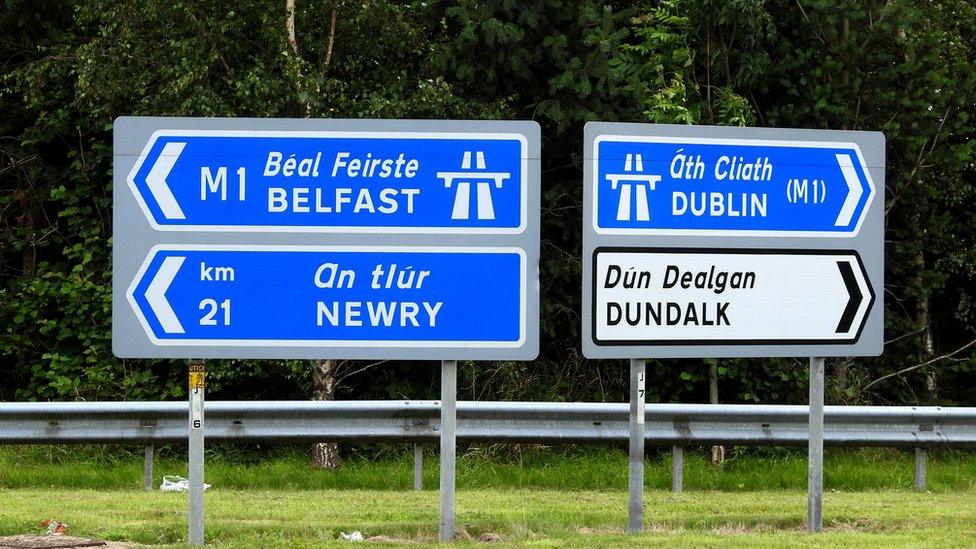
- Published7 January 2022
